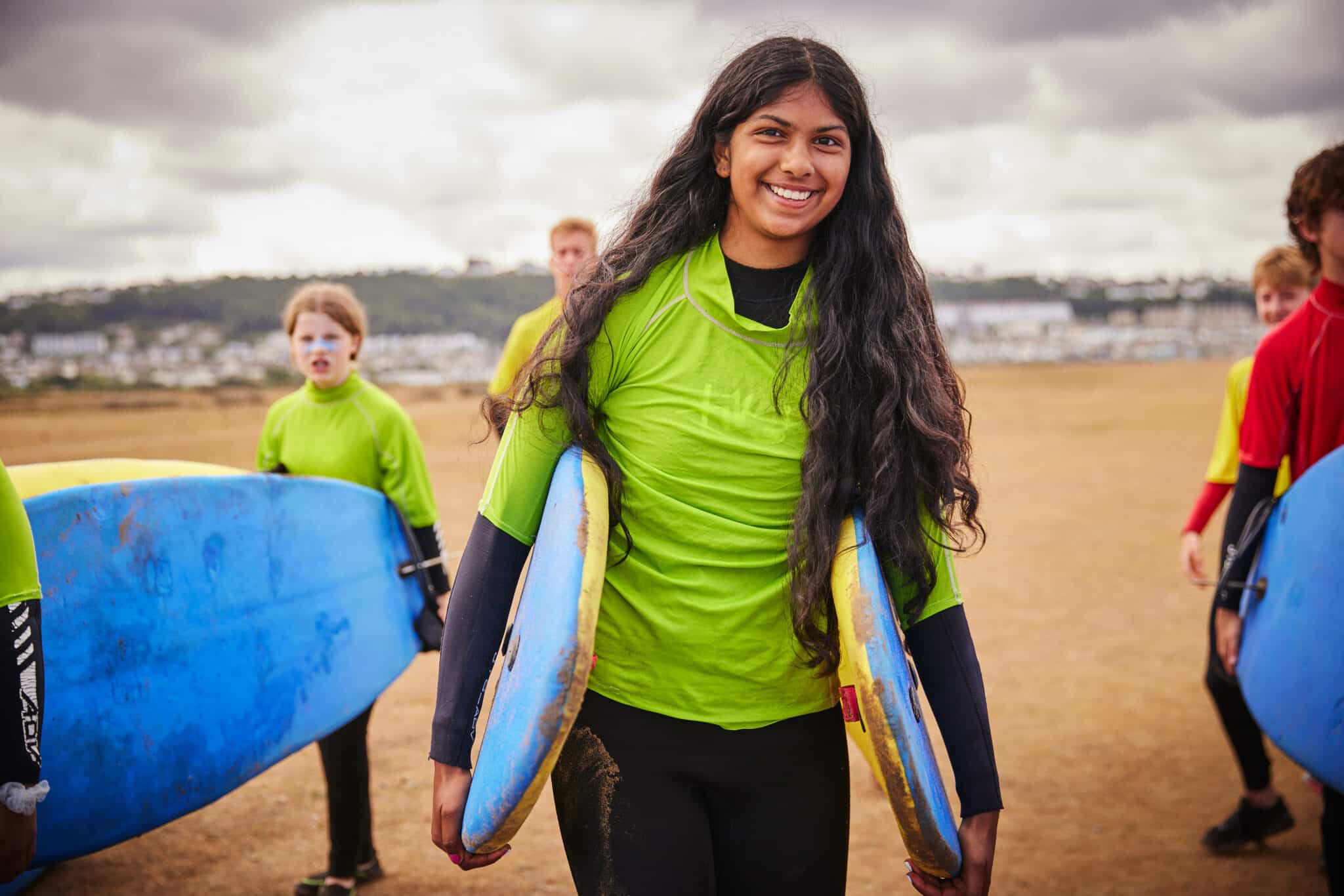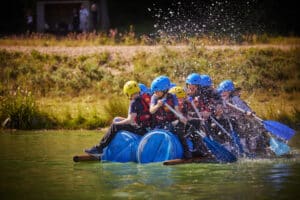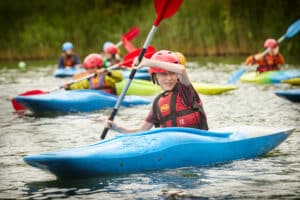Enrichment activities play a big part in secondary education, offering students the chance to develop new skills, build confidence, and engage in learning beyond the classroom. Whether it’s mastering a new sport, working as a team to solve challenges, or simply stepping outside their comfort zone, these experiences help students grow in ways that traditional lessons often can’t.
Not only do enrichment activities make learning more interactive and enjoyable, but they also provide long-term benefits—boosting problem-solving skills, resilience, and even future career prospects. In this guide, we’ll explore seven exciting enrichment activities that secondary school students will love, highlighting how each one helps them develop essential life skills.
Ready to discover some of the best activities to inspire and challenge students? Let’s dive in!
Why Are Enrichment Activities Beneficial for Students?
Enrichment activities aren’t just a fun break from traditional lessons; they play a crucial role in a student’s overall development, both academically and personally. These activities provide hands-on experiences that engage students in new and exciting ways, helping them build confidence, develop key skills, and stay motivated in their learning journey.
By stepping outside of the classroom and into dynamic, real-world scenarios, students gain valuable experiences that enhance their education and personal growth. Whether they’re tackling a team challenge, mastering a new sport, or working through problem-solving tasks, these activities encourage them to think critically, communicate effectively, and adapt to new situations.
The Key Benefits of Enrichment Activities
- Boosts Engagement and Academic Performance – Making learning interactive and engaging helps students stay motivated and perform better in school. Hands-on activities reinforce classroom concepts in practical ways, making learning more enjoyable and effective.
- Develops Essential Life Skills – Enrichment activities encourage teamwork, communication, leadership, problem-solving, and resilience, skills that are valuable in school, the workplace, and beyond.
- Supports Mental and Physical Well-being – Many enrichment activities involve physical movement, which contributes to better physical health, reduces stress, and promotes emotional resilience. Being outdoors and socially engaged also helps improve focus and overall well-being.
- Prepares Students for the Future – By fostering leadership, decision-making, and collaboration, these activities equip students with the skills and confidence they need for future careers, higher education, and life beyond school.
Enrichment activities are more than just a fun extracurricular—they’re an essential part of a well-rounded education, helping students grow into confident, capable, and well-prepared individuals.
How to Choose the Right Enrichment Activity For Your Students
Selecting the right enrichment activities for your students requires careful consideration of their interests, abilities, and developmental needs. Secondary school students are at a stage where they are discovering their passions, strengths, and personal preferences. Providing the right mix of activities ensures they stay engaged, challenged, and excited to learn new skills.
- Catering to a Variety of Interests – No single activity will appeal to every student, so offering a diverse range of options is key. Some students thrive in physically demanding activities like surfing or canoeing, while others may prefer skill-based challenges like fencing or problem-solving tasks like raft building. A well-rounded selection allows students to choose an activity that aligns with their interests—or step outside their comfort zone to try something new.
- Balancing Different Skill Levels – Students come with varying levels of confidence and experience, so it’s important to offer activities that cater to different skill sets. If an activity feels too advanced, some students may feel discouraged and opt out. On the other hand, activities that are too simple may fail to challenge them. Striking a balance between beginner-friendly and more advanced experiences ensures every student feels included and encouraged to participate.
- Encouraging Personal Growth – While it’s important to offer activities that students naturally enjoy, enrichment is also about expanding their horizons. Introducing activities that push them slightly outside their comfort zone, while still being accessible, can help them build resilience, adaptability, and self-confidence.
By providing a thoughtful mix of enrichment activities, schools can create an environment where every student has the opportunity to explore new interests, develop key life skills, and gain experiences that will benefit them for years to come.
Our Top Picks of Enrichment Activities for Schools
Bring excitement and adventure into your students’ school experience with these dynamic enrichment activities. From thrilling outdoor challenges to skill-building experiences, these activities offer more than just fun—they empower students with valuable life skills, boost confidence, and encourage teamwork. Let’s dive into some of our top picks and explore how they can benefit your students
- Canoeing
A water adventure like Canoeing is an enriching experience, as it blends together skill-building and the exploration of nature! Students will learn how to navigate the lakes, develop teamwork in a range of games and build resilience. Canoeing is a fantastic enrichment activity that is both fun and provides an opportunity for development.
- Survivor
This activity is sure to enrich the knowledge of many of your students. Students will take part in a range of activities that test their problem-solving skills, teamwork and adaptability. Students have endless fun showing how they are strong enough to survive in the forest while also developing a range of other skills.
- Keelboat Sailing
Keelboat sailing allows your students to set sail on a journey like no other, improving leadership skills, communication skills, decision-making skills and teamwork skills. Master the art of sailing in this unique outdoor activity and introduce your students to a whole new adventure! Keelboat Sailing is the ideal opportunity to help your students discover their true leadership potential. At PGL we offer keelboat sailing for a range of abilities, available at Osmington Bay!
- Fencing
En garde! If your students aren’t familiar with the sport, then this could be a great addition to your school trip with us. Fencing demands discipline, focus and strategic thinking as they learn all about the rules and respect. Students will put on the iconic fencing gear and prepare to duel! They’ll be taught the basics of fencing, including how to play and how to score, before challenging each other.
- Raft Building
Students love to be creative and innovative. Just think of when you announce to the class that they’ll be designing something as a team. Well, Raft Building fosters exactly the same skills. It’s all about collaboration, creativity and communication. They’ll gather materials from the ones provided and work together to build a raft that’ll be tested on the waters. Your students might not know it, but this brain-stimulating activity and developing so many crucial life skills!
- Burn walk
Exclusive to Dalguise, A Burn Walk offers the chance for students to enhance their knowledge of the impact of erosion, water filtration and the flora and fauna of the burn environment. It’s more than just a walk through the forest, it’s an adventure into nature that teaches about the importance of what’s around us.
How Enrichment Activities Support Personal Development and Future Careers
Enrichment activities go far beyond just providing a fun break from the classroom, they play a vital role in shaping students’ personal development and preparing them for future careers. By engaging in these activities, students build the essential life skills that they will need in further education, employment, and everyday life.
- Building Confidence and Leadership Skills – Many enrichment activities encourage students to take on leadership roles, whether by guiding a team during raft building or making quick decisions in a fencing match. These experiences help students develop confidence in their abilities, improve their decision-making skills, and become more comfortable taking on responsibilities—essential qualities for leadership in future careers.
- Developing Problem-Solving and Adaptability – Activities like Survivor and keelboat sailing require students to think on their feet, adapt to changing situations, and find solutions to unexpected challenges. Employers value candidates who can handle uncertainty, remain calm under pressure, and use creative thinking to overcome obstacles—skills that these activities help to instil.
- Enhancing Teamwork and Communication – Strong communication and teamwork skills are critical in almost every career path. Enrichment activities like canoeing, raft building, and Burn Walk require students to collaborate effectively, listen to one another, and work towards a common goal. Learning how to communicate clearly and work well in a team setting will give students a strong foundation for future professional environments.
- Providing Experiences That Boost University and Job Applications – Extracurricular involvement is highly valued by universities and employers. Their participation in enrichment activities demonstrates a well-rounded skill set, a proactive attitude, and the ability to take on challenges outside of the classroom. Whether applying for university courses, apprenticeships, or jobs, students who engage in these activities can showcase valuable experiences that set them apart from other candidates.
- Encouraging Resilience and Perseverance – From failing that super difficult climb to getting back up to facing the mental challenge of completing an outdoor adventure course, enrichment activities teach students the importance of perseverance. Employers and higher education institutions look for individuals who can handle setbacks, learn from them, and push forward with determination, qualities that are strengthened through these experiences.
By incorporating enrichment activities into students’ education, schools can help young people develop the confidence, skills, and mindset needed for a successful future. Whether students go on to pursue higher education, vocational training, or enter the workforce directly, these experiences provide them with the tools they need to thrive in any path they choose.
Outdoor Adventure Camps with PGL
Ready to book an educational and fun-filled enrichment trip for your students? At PGL, we believe the best learning happens beyond the classroom—through adventure, teamwork, and hands-on experiences. Our residential school trips are designed to challenge, inspire, and create memories that last a lifetime. With a huge variety of adrenaline-fuelled activities by day and exciting entertainment by night, every moment is packed with adventure!
We offer tailored school trips for both primary and secondary students, focusing on outdoor education, skill-building, and personal development. Explore some of our specialist programmes:
- Football Coaching
- Netball Tournaments
- Ardèche Adventure
- French Package
- R.E.A.C.H. – UNITE!
- R.E.A.C.H. – GROW!
- Geography GCSE
- Maths KS3
- Ski & Snowboarding
With an incredible selection of activities, fantastic locations, and expert-led programmes, PGL is the perfect choice for your next school trip. Get in touch today and start planning an unforgettable adventure for your students!
FAQs About Enrichment Activities for Schools
Are these activities safe for all students?
Yes, all activities are supervised by trained professionals, and safety measures are in place. Schools should assess any additional accessibility needs for students.
What age groups are these activities best suited for?
Most activities are ideal for secondary school students (ages 11-16), but some can be tailored for younger or older students.
Do these activities require specialist instructors?
Yes, trained instructors are required for activities like sailing and fencing. However, some activities, like Survivor and raft building, can be led by teachers with the right resources.




